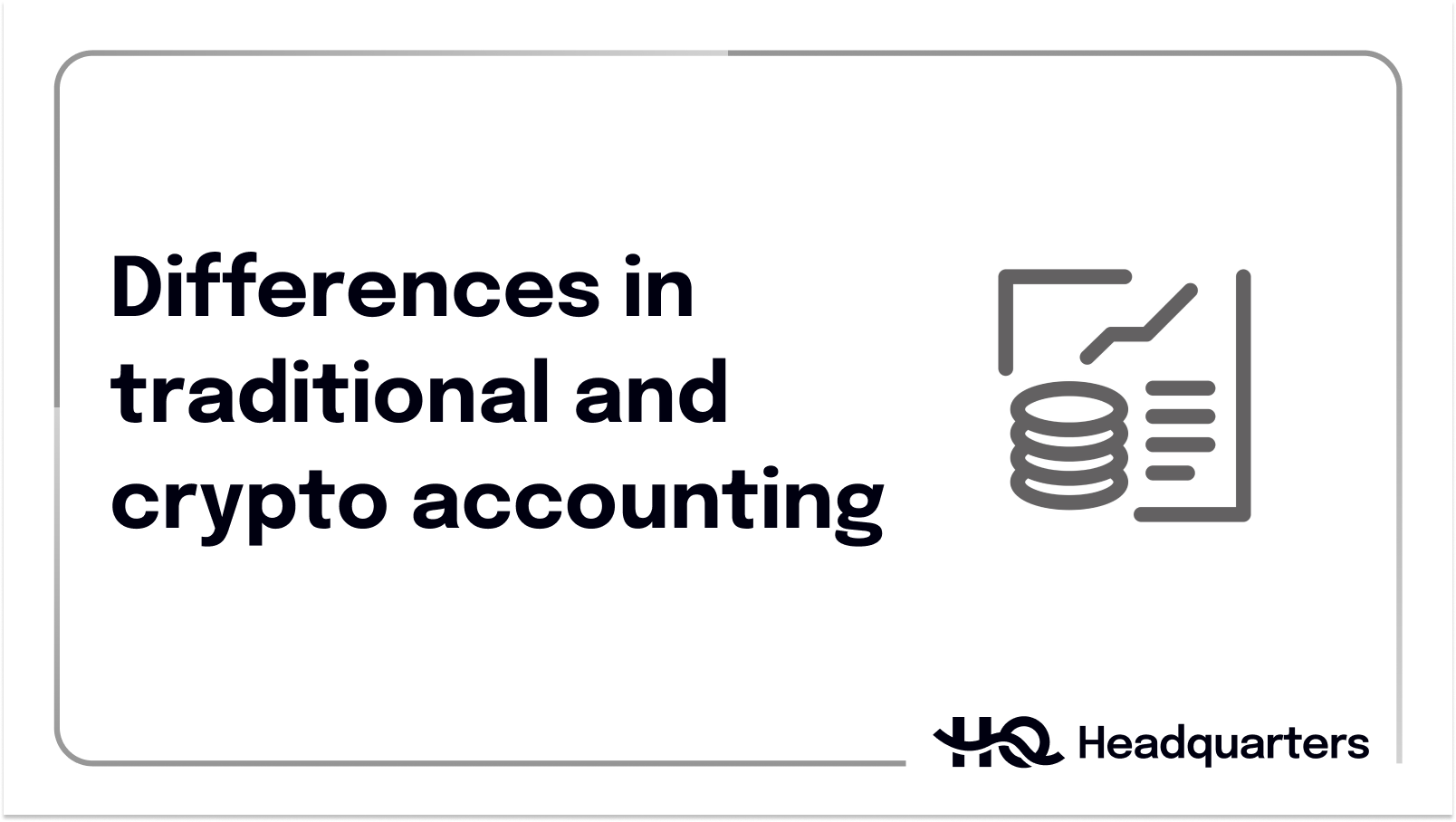
Principles to Consider in Crypto Accounting

How does Accounting in Crypto differ from Traditional Accounting?
Crypto accounting differs from traditional accounting in several key ways due to the unique features of cryptocurrencies.
Here are some core principles that differentiate crypto accounting:
1. Valuation and volatility
Cryptocurrencies can be highly volatile assets, with their values subject to significant fluctuations in short periods. Unlike traditional assets, where valuation is relatively less volatile as compared to cryptocurrencies, crypto accounting requires continuous monitoring and updating of asset valuations to reflect current market prices accurately.
Note: Stablecoins - which are pegged to the value of an underlying fiat currency, can help address some of these concerns. However, we should be aware that most jurisdictions do not treat stablecoins as cash equivalents.
2. Asset Classification
Cryptocurrencies can be classified differently from traditional assets like cash, securities, or inventory. They may be treated as intangible assets, financial assets, or even inventory, depending on the nature of the entity's involvement with cryptocurrencies (e.g., trading, investment, mining).
In addition, do note that IFRS (International Financial Reporting Standards) and GAAP (Generally Accepted Accounting Principles) may have different approaches when it comes to how crypto assets are classified.
3. Unique Transactions:
Crypto transactions often involve unique complexities absent in traditional accounting, such as mining rewards, airdrops, hard forks, staking rewards, and decentralized finance (DeFi) transactions. Each of these transactions requires specialized accounting treatment to ensure accurate financial reporting.
In summary, crypto accounting requires a deep understanding of both accounting principles and blockchain technology to accurately record, report, and audit transactions involving cryptocurrencies. It involves addressing unique challenges related to valuation, classification, transactions, custody, compliance, technology, taxation, and auditing.
